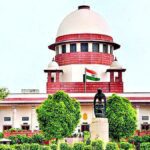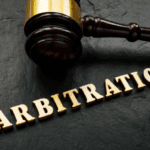In two writ petitions, M/S Jai Singh and Co. and M/s Dimple Chaudhary v. National Highways Authority of India, the Delhi High Court declared that it is unacceptable to terminate a public contract, particularly one with a defined period, only for the prospect of collecting more money. This judgement was made in response to petitions opposing the National Highways Authority of India’s (NHAI) choice to let fresh bids for toll plazas in Haryana while active contracts remained in place.
Facts –
A fee plaza at Ambala-Kaithal on NH-65 requires a user fee collecting agency, hence the respondent published an e-tender asking for e-quotations. Participating and chosen as the winning bidder was the petitioner. For a three-month term, the petitioner was hired on a temporary basis to act as the agency charged with collecting user fees. Prior to the original three-month contract’s expiration, the Respondent issued another Request for Proposals (RFP) for the same toll plaza. Participating once more, the Petitioner was selected as the winning bidder. A contract was signed for a year, from February 16, 2022 to February 16, 2023.
Prior to the current contract’s expiration on October 13, 2022, Respondent published a new tender for the same toll plaza a third time. Although there is no claim that the Petitioners have broken their duties, this new offer has been contested in the current Writ Petition on the grounds that it ends the prior one and that the Respondent is not permitted to issue another tender before the existing one expires.
Court’s Observation –
The bench used an example to the situation and pointed out that the contract forbade the Petitioner from calling off the deal because of a drop in traffic. By using this comparison, the court determined that NHAI could not cancel the contract because of an increase in traffic brought on by the operation of the Trans-Haryana project on NH-152D, which was still being built at the time the Petitioners submitted their bid and was anticipated to be operational throughout the contract’s term.
The Chief Judge Satish Chandra Sharma and Justice Subramonium Prasad division bench described the NHAI’s decision to issue a new RFP as arbitrarily, capriciously, and whimsical since it was made merely because increased traffic would mean the potential of getting more money. According to the court, considering the principles of justice, such a judgement is not permissible under Article 226 of the Indian Constitution.
Analysis –
The increase in the bid amount of the third RFP, which serves as a feeder route to the toll plaza in question, is evidence that the contractors were aware of the increase in traffic on the toll plaza brought on by the completion of work on the Trans-Haryana project on NH-152D, according to the NHAI’s argument before the high court. The government has the right to launch a new RFP since it has made considerable financial investments in infrastructure development. The counsel also claimed that it is typical to publish new tenders while the earlier contract is still in effect. There are no claims that NHAI has favoured any one firm by cancelling the contract and releasing a new RFP, the representative of NHAI said, and it is the State’s job to determine what is in the best interests of the public. The legal representative added that the decision-making procedure was transparent.
The bench stressed that the State must act equitably, not capriciously or arbitrarily. The exercise of contractual authority for the public good is subject to judicial scrutiny. People expect the State to operate consistently when they engage into contracts with the Government and not unilaterally terminate agreements that have a set length in order to increase profits. Citing Shrilekha Vidyarthi (Kumari) v. State of U.P., the court further acknowledged NHAI’s status as a statutory-backed public authority and made a distinction between contracts between private parties and those to which the State is a party.
In Vice Chairman & Managing Director, City and Industrial Development Corporation of Maharashtra Ltd. v. Shishir Realty P. Ltd., the Apex Court made the observation, that when a contract is being evaluated, the mere possibility of more money in the public offers does not in itself serve the public interest. Contractual commitments cannot be waived by the State using a generalised claim of loss of public funds, especially where the assertion is unsupported by any proof or investigation. Upholding contracts and ensuring that public agencies operate fairly are also in the public interest. When assessing such contracts, courts need to have a broader grasp of the public interest.
The court ruled that after reviewing the counter, it became clear that NHAI’s decision to revoke the Petitioners’ contract and issue a new RFP was made entirely on the basis of a rise in traffic, which was arbitrary and went against the contract’s due process. This Court’s authority under Article 226 of the Indian Constitution cannot tolerate it since it contradicts equitable standards. The Writ Petitions were therefore approved.
This article is written by Garvit Shrivastava, a second-year law student at O.P. Jindal Global Law School. His research interests lie in the area of Real Estate laws, corporate laws, Alternative Dispute Resolution, and Insolvency and Bankruptcy Laws.



